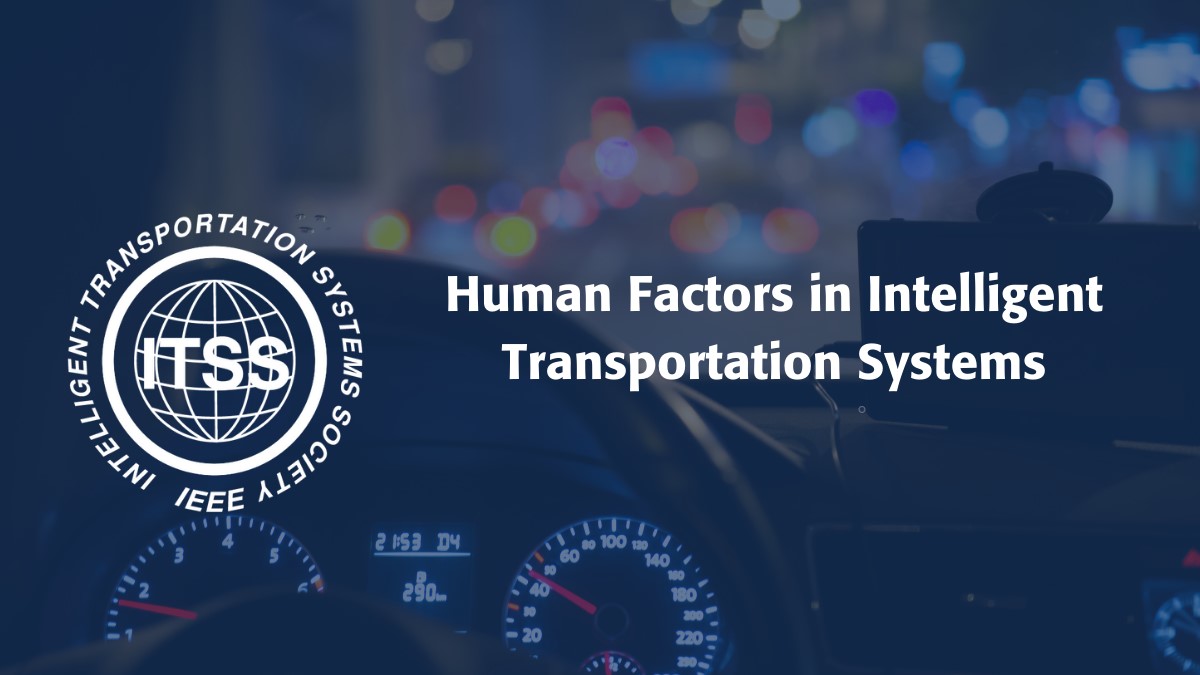
Chair: Cristina Olaverri-Monreal
Co-Chair(s): Stewart Worrall
Short Description
The IEEE-ITSS committee on Human Factors in Intelligent Transportation Systems was established in 2014. This TAC is expected to build upon a proper environment to disseminate knowledge and motivate interactions among the technical and scientific communities, practitioners and students, allowing state-of-the-art concepts and advances to be further developed and enhanced.
Goal
It aims at fostering activities on issues related to human factors in the design and evaluation of intelligent vehicles technologies, in a wide spectrum of applications and in different dimensions.
Committee Activities
Activities related to ITSS conferences:
- Consolidate the Special Sessions within IEEE ITS Conferences;
- Consolidate the successful series of the Workshop on Human Factors in Intelligent Vehicles, within IEEE IV Conferences
- Activities related to ITSS Publications
- Promote Students’ Activities at IEEE ITS Society’s Conferences, related to topics of interest to our HFITS Technical Committee.
Public Demostrations:
- Dataset acquisition
- Activies Dissemination through papers, TV and Radio broadcast
- Human Factors Experiments
Milestones
- Organization Special Session on Human Factors in Intelligent Vehicles at the ITSC 2023 and attendance to the TC meeting.
- Organization Workshop on Human Factors in Intelligent Vehicles at the IV2023 (http://hfiv.net/)
- Keynote “Connected & Automated Vehicles: Impact on Human Behavior & Decision-Making Processes Related to Road Safety & Sustainable Transportation” https://2023.ieee-itsc.org/keynotes/
- Seminar: Lunch seminar: Autonomous and Connected Vehicles”, Chalmers University of Technology, Transport Area of Advance Field Tests Data Collection for in-vehicle activities
- Workshop Australian Urban Robotic Futures: Potentials, Limits and Options, Workshop
Committee Members
- Cristina Olaverri-Monreal, Johannes Kepler University Linz, Austria
- Stewart Worrall, University of Sydney, Australia
- Liu Kai, Dalian University of Technology, China
- Kimihiko Nakano, University of Tokyo, Japan
- Hu Hongyu, Jilin University, Changchun, China
- Xuewu JI, Tsinghua University, Beijing, China
- Rencheng Zheng, Dalian University of Technology, China
- Fernando Garcia, University Carlos III, Madrid, Spain
- Xuefeng Zhu, Dalian University of Technology, China
- Joonwoo Son, Daegu Gyeongbuk Institute of Science & Technology, South Korea
- Hailong Liu, Nara Institute of Science and Technology, Japan
- Shobhita Rajashekar, Caltrans: California Department of Transportation, United States
- Naren Bao, University of Tokyo, Japan


